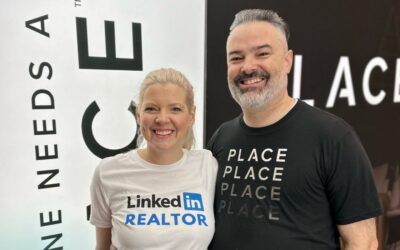Have you ever wanted to go on an epic trip but never ventured too far from home or for too long because of the pressing demands of your real estate business? When PLACE Partner Fred Sed of Southern California and his family began discussing a two-month RV trip across the U.S., it felt like a distant dream. As the Operator of the Fred Sed Group, Fred rarely took a week off work, and this trip required multiple weeks off during peak summer sales season. Could he be absent that long without losing control of his successful business, team, and sales production?
Fred took a giant leap for any proprietor — he unplugged from his profitable business for nearly two consecutive months to take his family on a trip of a lifetime. After speaking with his PLACE Partners Ben Kinney and Chris Suarez, he knew he needed to mentally prepare for what operations should look like when he returned. We sat down with him to discover how he did it, what he learned, and how you can apply it in your life.
1. Define your Why
When you’re considering planning an extended trip, first identify why you need time away. Does your mind and body need to unplug and recharge? Is spending time with family or creating life-long memories a top priority? Are experiences more valuable than money to you? Are you more creative when you work less and play more? Defining the goals of your downtime helps you stay committed to taking time off and prioritizing how to incorporate it into your business plan.
Fred had two Whys:
- Dedicated family time with no business distractions
- Testing the waters to see if his real estate business could function and thrive in his absence
2. List your tasks
As a real estate team leader and successful entrepreneur, you likely play a big role in daily operations. Write down everything you do, including any of your activities for real estate sales and communicating with your target audience.
For example, Fred’s team closes hundreds of transactions, with Fred personally managing around 40 real estate deals per year. With him being gone for two months, someone had to complete his regular activities, so his time off would not interfere with his production and profit margins. As part of the preparation process, Fred positioned his team to follow through with his income-generating activities. He assigned his tasks to one or more team members, trained them on his process, and gave them complete ownership.
3. Prepare your mindset
The purpose of a vacation is to live in the moment and be present. But, for most of us, especially business owners, it’s difficult to let go of concerns while away. Here are a few things you can do to prepare mentally:
- Realize vacation time is not a luxury but a necessity for your mental health. Time away allows your body and mind to recharge, making you happier, healthier, and more productive.
- Prioritize fully disconnecting from all things work-related. If that is not an option, designate a strict check-in and a check-out time to view daily emails or make calls.
- Make your vacation official by marking time off on the shared calendar, giving you and your team ample time to prepare.
- Take tactical steps to plan ahead, such as delegating your responsibilities to your team, setting parameters on your availability, taking the time to address team questions and concerns about daily operations, and outlining emergency procedures.
Giving yourself permission to unplug creates a space to evaluate your priorities and reconnect to your real estate business with a fresh perspective.
For Fred, the trip gave him the time and distance to reassess how he envisioned his future role. His big business strategy question: Should he continue selling real estate or start changing people’s lives in his organization? He decided the latter gave him the purpose he desired. Now, he helps his agents or staff members sell enough homes each year so that they, too, can live a similar lifestyle.
4. Look for the gaps
As a real estate leader, you are certainly aware of your team’s strengths and the areas that need improvement. Look for these gaps and find time to coach your team and address these issues.
Fred found and addressed two areas of concern in his business when he went on vacation:
- Lagging conversions
- His talented agents did a great job with the number of dials and conversations, but they struggled with conversion.
- Lacking leadership development
- Before leaving, Fred knew he needed to invest more in his leaders and give them the tools and resources to help them excel in any real estate market. He strategically enrolled his team members in PLACE training and calls to develop their abilities rather than drawing from his limited time.
While problem areas may be clear before your departure, don’t stop there. Use the time away to get even more clarity on how to improve the processes for your team and the models and systems needed for your business structure.
5. Embrace a real estate business role shift
It can be easy to let our mindset shift toward worst-case scenarios, but what we anticipate rarely happens. As a real estate team leader, you’ll find that being away from the hustle and bustle of daily operations helps you gain a deeper perspective on your role and how it aligns with your long-term vision. Balancing work and time off helps you build a profitable business through preparation, training, and systems while also providing growth opportunities for your team and business.
Fred’s big takeaway: His business could thrive and be profitable without depending on him.
During his two-month vacation, he completely disconnected from his real estate business — no calls, recaps, meetings, daily emails, training, negotiations, or problems. When he came back, he realized he had been doing many tasks that didn’t require him or his oversight. His team handled all of the real estate transactions, client communications, digital marketing, and daily operations perfectly, and upon his return, continued to own it. With less on his plate, Fred naturally gained more time back.
Fred was drawn to partnering with PLACE because it offered the opportunity to build an experiential life and gain much-needed leverage to enjoy true business freedom. If you’re seeking a similar business model, fill out this form and tell us more about your real estate business.




